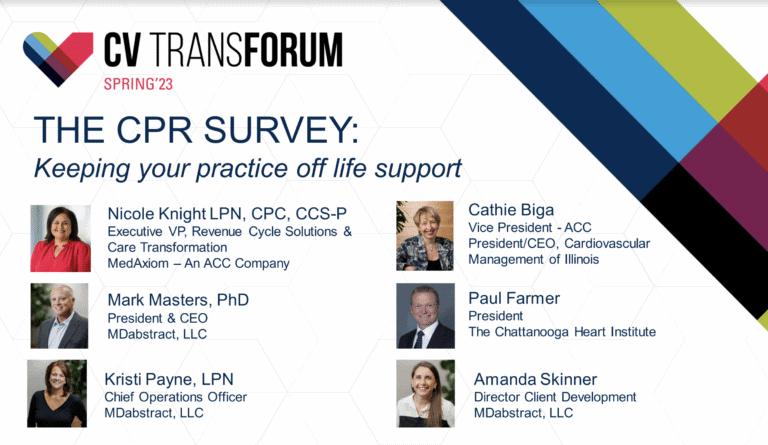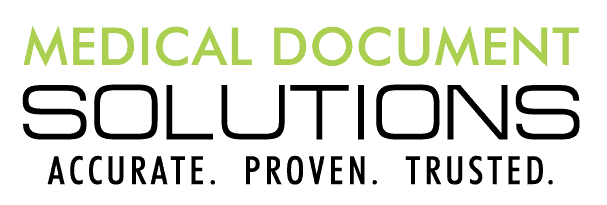As healthcare documentation demands continue to increase, having efficient, accurate patient data management strategies in place is a necessity. Ongoing clinical data capture is one strategy, that with the right process, allows for faster and more effective documentation.
Ongoing clinical data capture calls for the continuous collection, review, routing, filing, and abstracting of healthcare documentation into the EHR system as it arrives in the clinical setting. This approach provides healthcare providers with a more efficient workflow and allows for the organization of data in a more effective manner.
If your organization has explored implementing an ongoing clinical data capture solution but has not yet made the switch, the below information will help guide you through the process.
Example Documents That Are Part of Ongoing Clinical Data Capture
One major benefit of ongoing clinical data capture is that this process can accommodate a wide range of documentation that impacts the day-to-day operations of your healthcare organization. These can include:
- Test results
- Procedure results
- Surgery notes
- Hospital discharge summaries
- Lab results
- Outside records
The above list represents just a sample of some of the types of clinical records that an ongoing data capture process can collect, organize, and abstract. However, they can also come from multiple sources. Having a unified means to process them can result in more efficient delivery of information to the necessary recipients.
Why Ongoing Clinical Data Capture Matters
Timeliness and Accuracy of Legal Chart
One key advantage of ongoing clinical data capture is that it enables a patient’s legal medical record to be updated quickly and accurately. With ongoing data capture, electronic records are updated within hours of documentation being received. This means that clinicians and other healthcare providers can access the most up-to-date information on a patient’s medical history, which can inform their decision-making and lead to better outcomes. It also addresses the requirements of the CURES Act to provide patients with timely access to their medical office notes, labs, and testing results.
Reduced Documentation Burdens
Another benefit of ongoing clinical data capture is that it reduces the documentation burden on clinicians, which can help to mitigate burnout. In many healthcare settings, clinicians are required to document patient information manually, which can be a time-consuming and stressful task.
By outsourcing the data capture process, clinicians can focus on providing high-quality care to their patients, rather than spending valuable time manually fulfilling administrative tasks. This can ultimately increase provider satisfaction and reduce the risk of burnout.
Increased Provider Productivity
In addition, ongoing clinical data capture can increase overall provider productivity and improve patient access to timely appointments. With ongoing data capture, clinicians can spend less time on documentation and more time on patient care. This can lead to improved patient throughput, shorter wait times, and more efficient use of clinical resources. As a result, patients may be able to access care more quickly and efficiently, which can improve their overall experience and outcomes.
Better Decision-Making
Finally, ongoing clinical data capture can improve the quality of patient care by ensuring that all needed documentation is discretely available within the electronic record for decision-making. With all patient data in one place, clinicians can more easily identify patterns, make better decisions, and provide more personalized care.
What to Look for in the Right Outsourced Clinical Data Capture Service
A Team with Extensive EHR Platform Knowledge
Training internal team members on the workflow and functionality of a healthcare organization’s numerous data platforms is expensive and time-consuming. By outsourcing your ongoing clinical data capture to an experienced partner this heavy lift is removed from your organization.
Expert-Level Staff and Best Practices
In the clinical setting, many team members have patient care expertise but are not educated on the complex data and documentation needs of providers and revenue cycle management. Outsourcing ongoing clinical data capture allows an organization to hire dedicated data and documentation specialists who have specific skills to improve overall workflow and data quality.
When you’re considering options for an outsourced provider, ask them about the credentials and expertise of their staff. Choose one that demonstrates the same passion for the healthcare industry as you do with the knowledge and skill to support it.
Cost-Effective Services
Hiring any outsourced provider represents an investment in improving your clinical workflow. Ultimately, you will have to consider how much it will cost as well as the value you receive in return for the expense. Simply, does the money you spend justify the return?
Compare the cost of a potential provider’s services against that of a full-time employee in a similar role. Will you be saving on cost once you factor in the financial requirements of an in-house hire, such as onboarding, salary, payroll taxes, benefits, and management?
Get the Clinical Data Capture Solution Your Organization Deserves
For over a decade, our team at MDAbstract has served countless healthcare organizations as a trusted partners in healthcare data managed services. We provide your staff with a fully virtual, outsourced solution that includes ongoing management, productivity oversight, and quality auditing as part of our process so that you can confidently make better-informed decisions and provide next-level patient care.
To learn more about working with our team for ongoing clinical data capture, book a 15 minute discovery call with us today.






